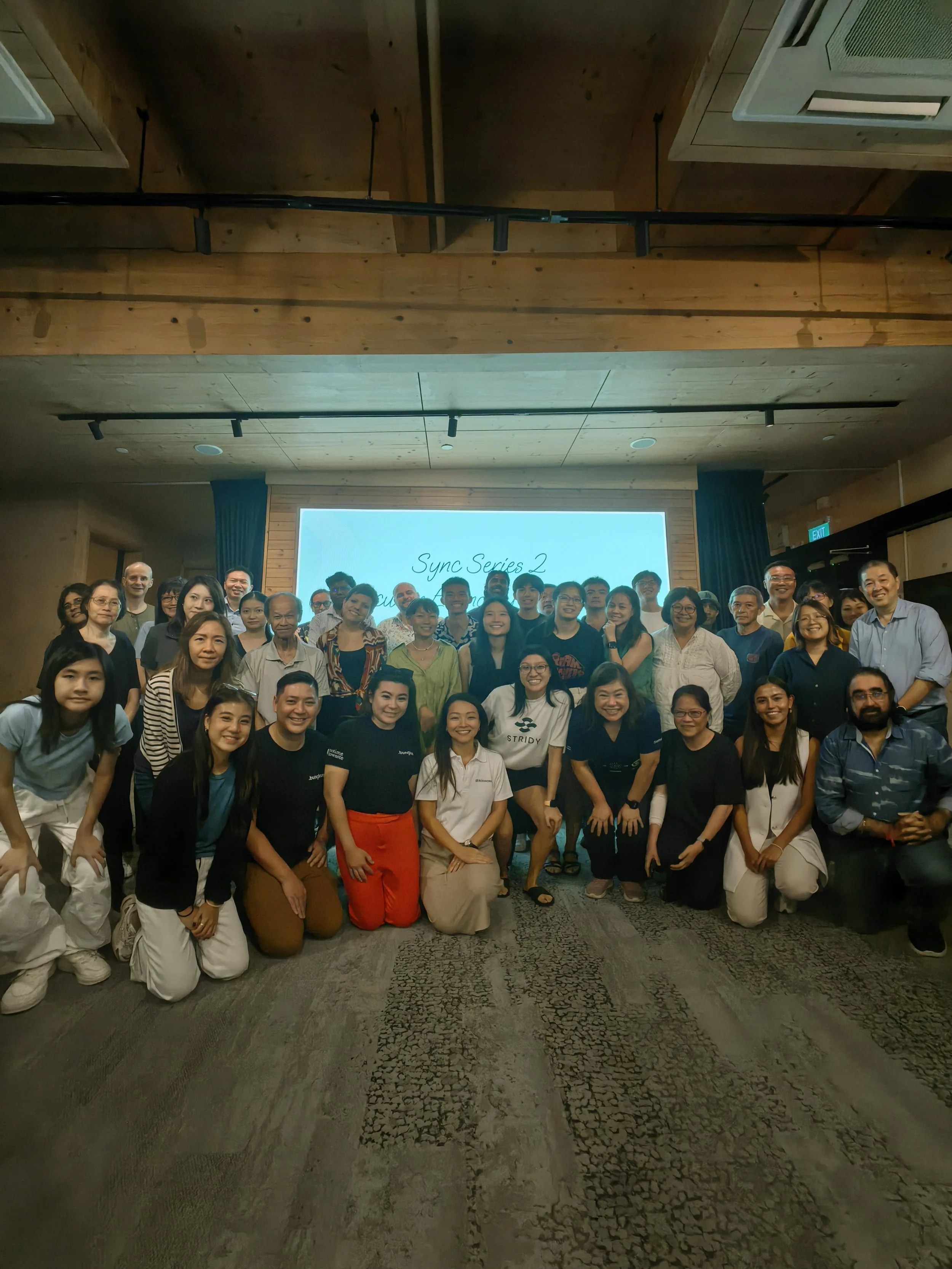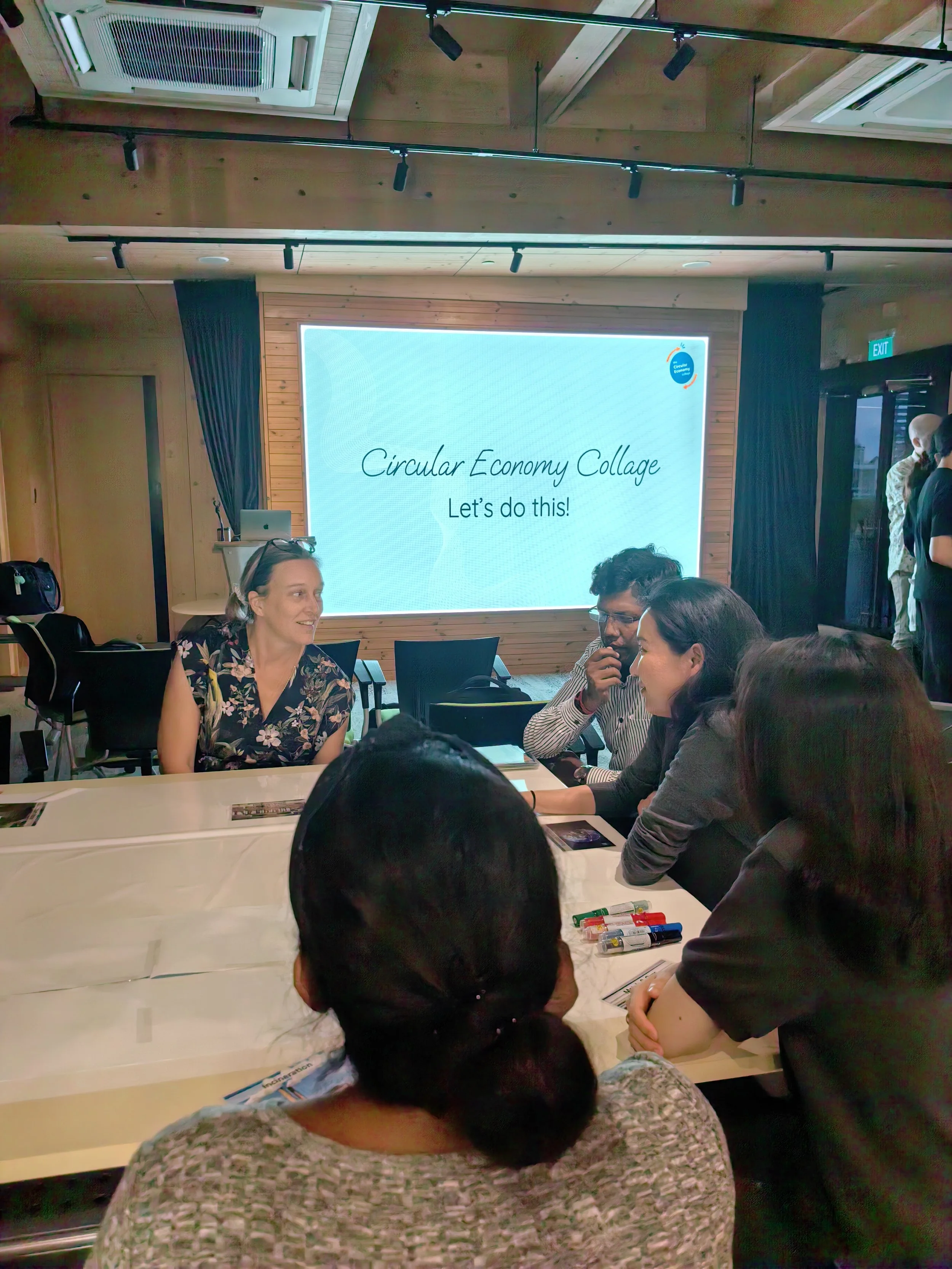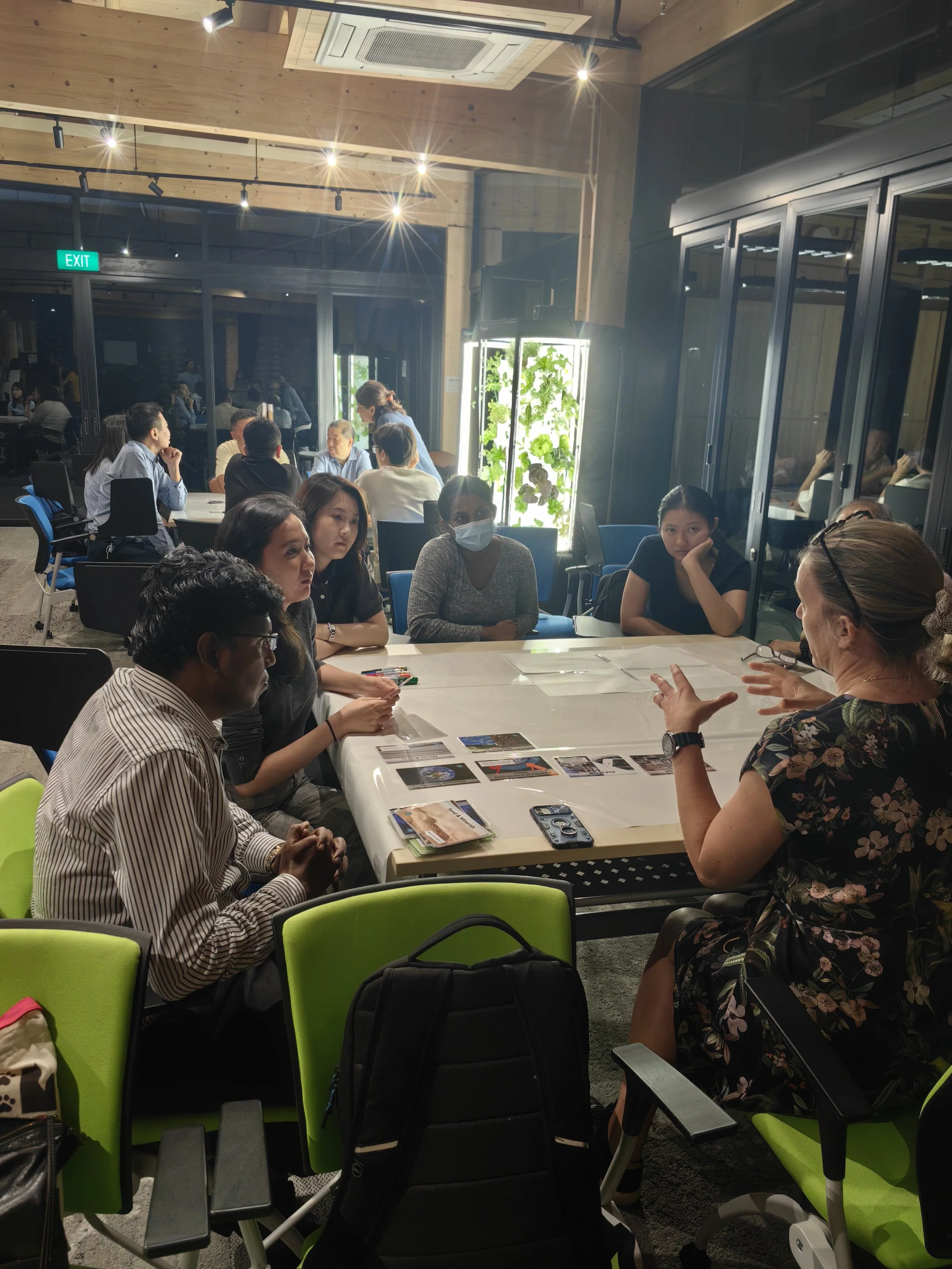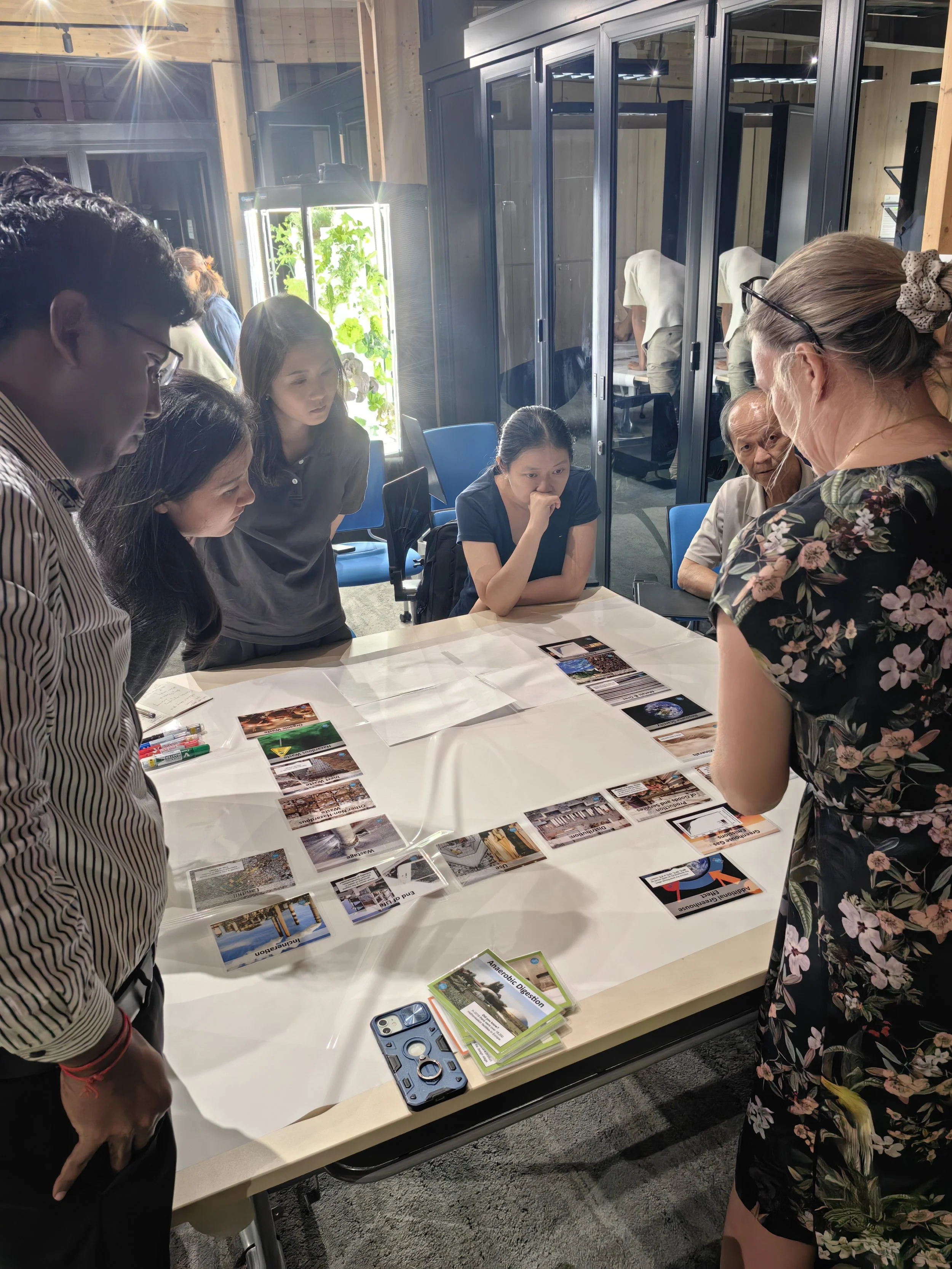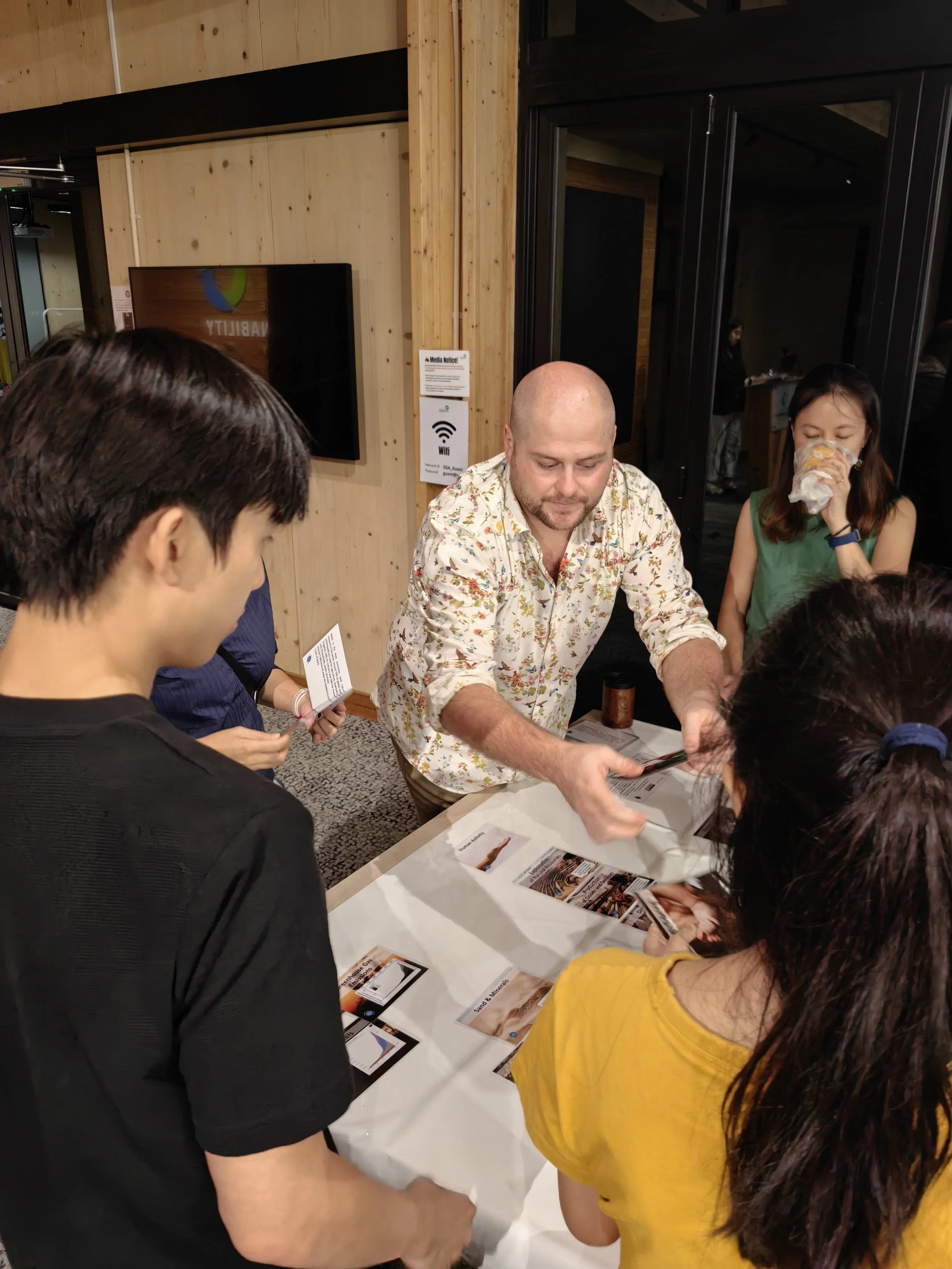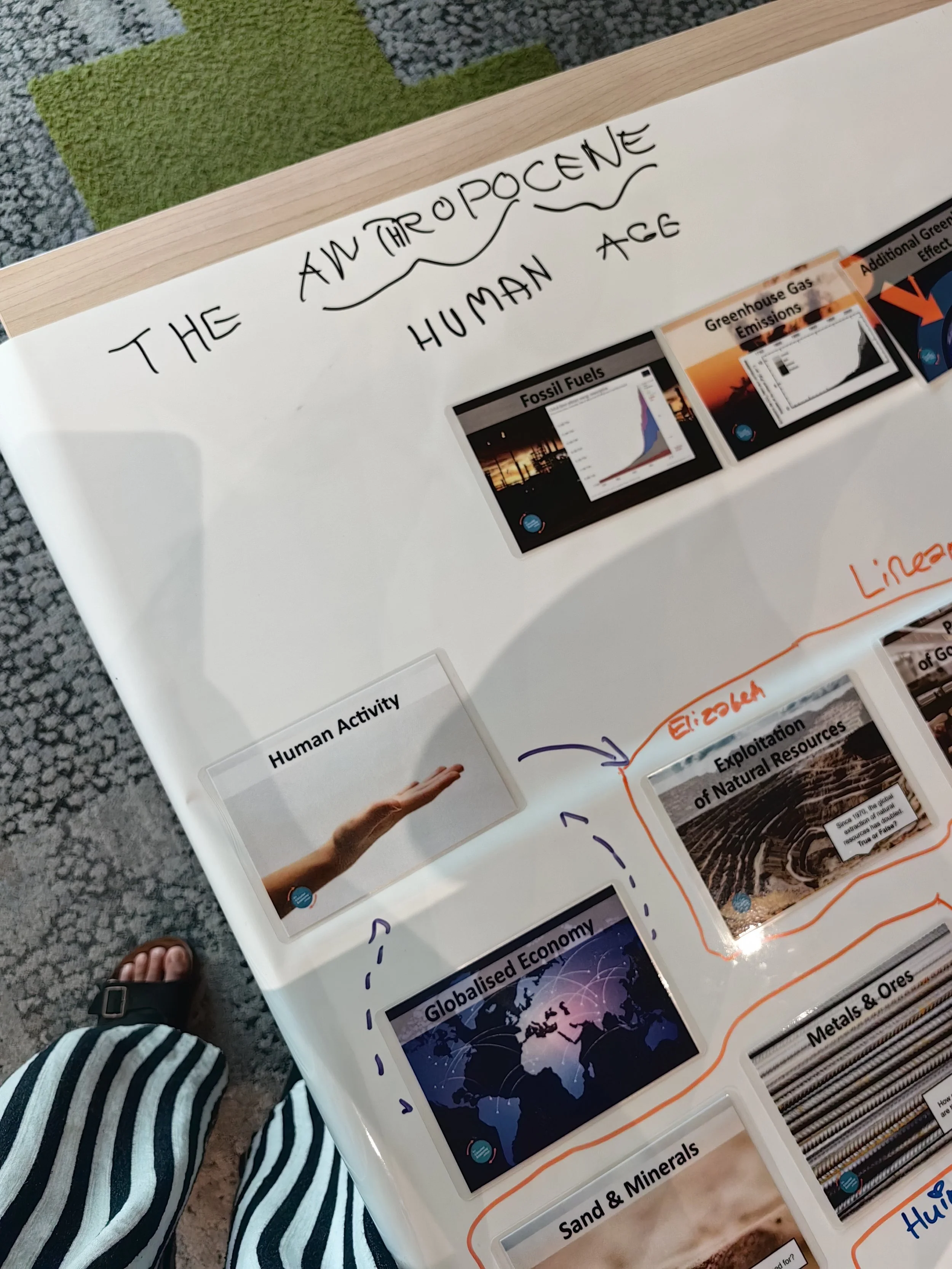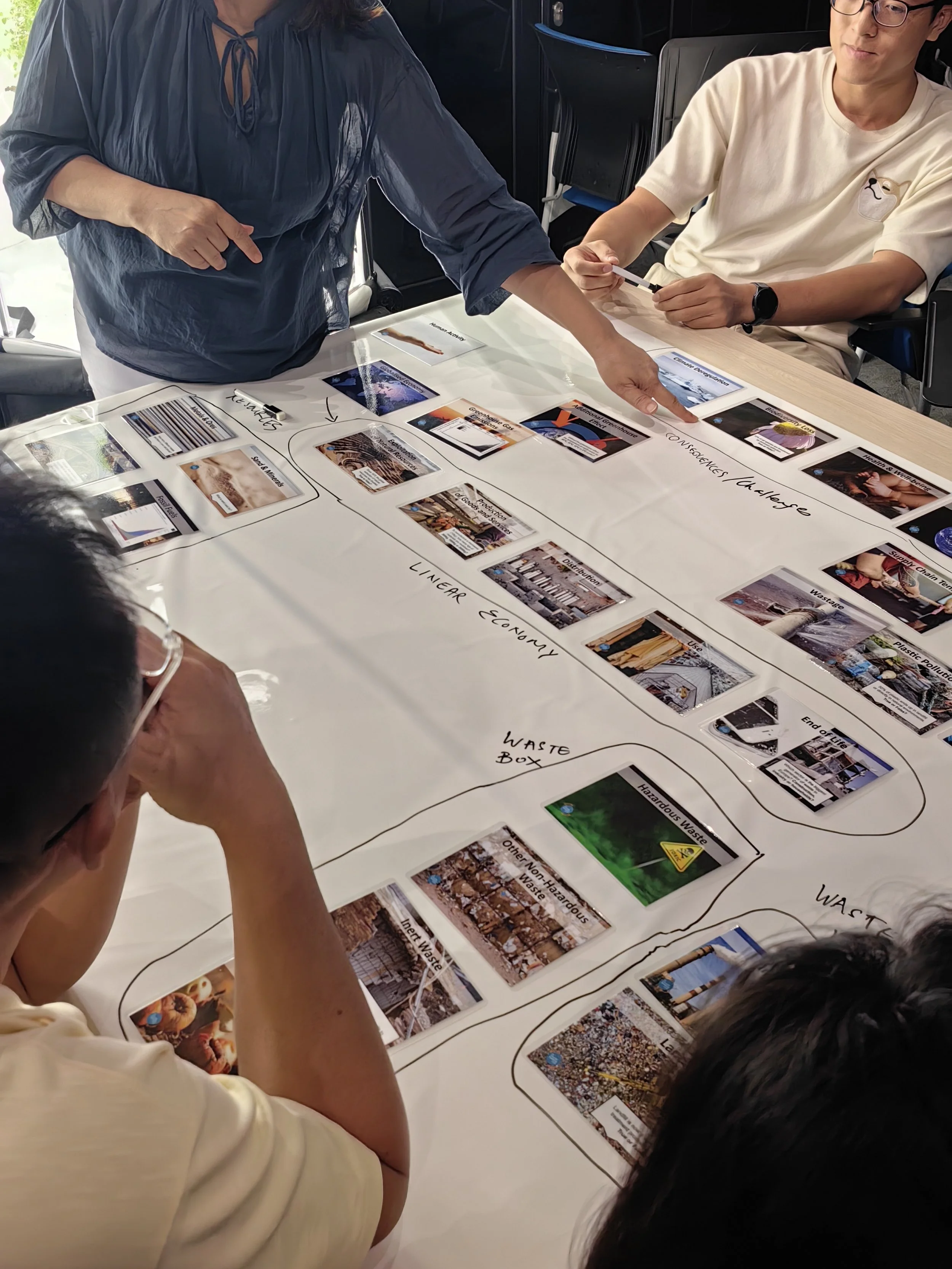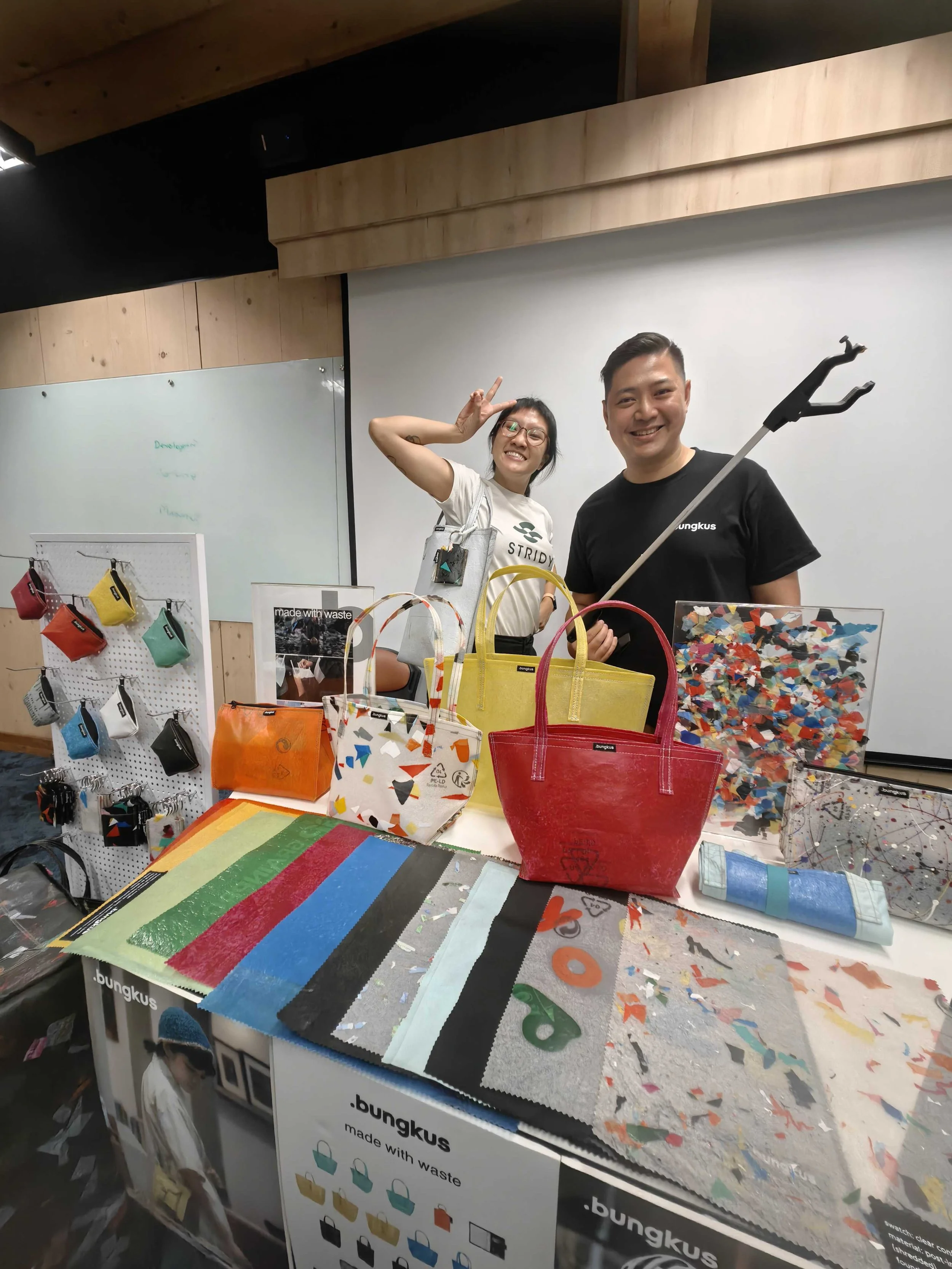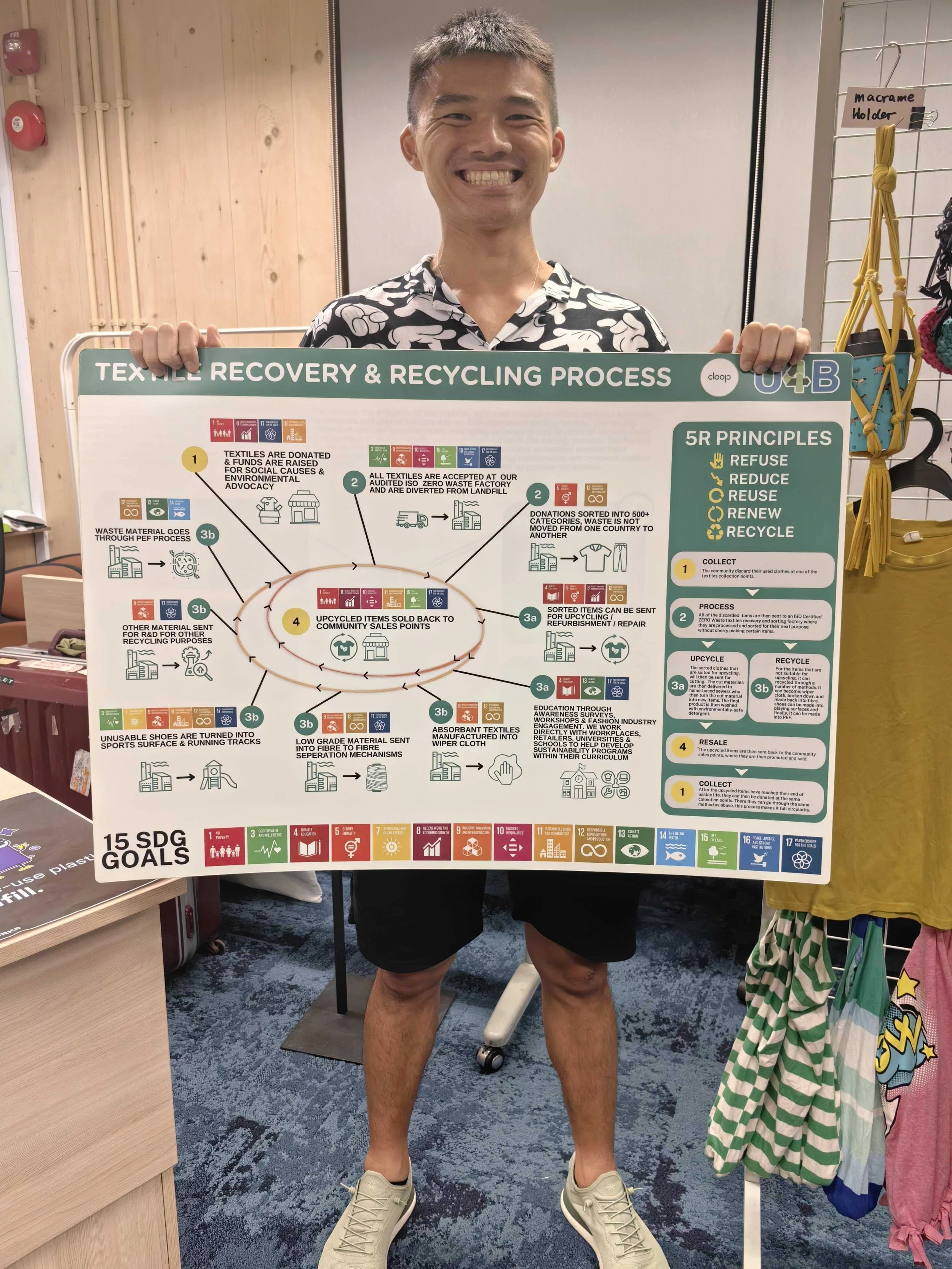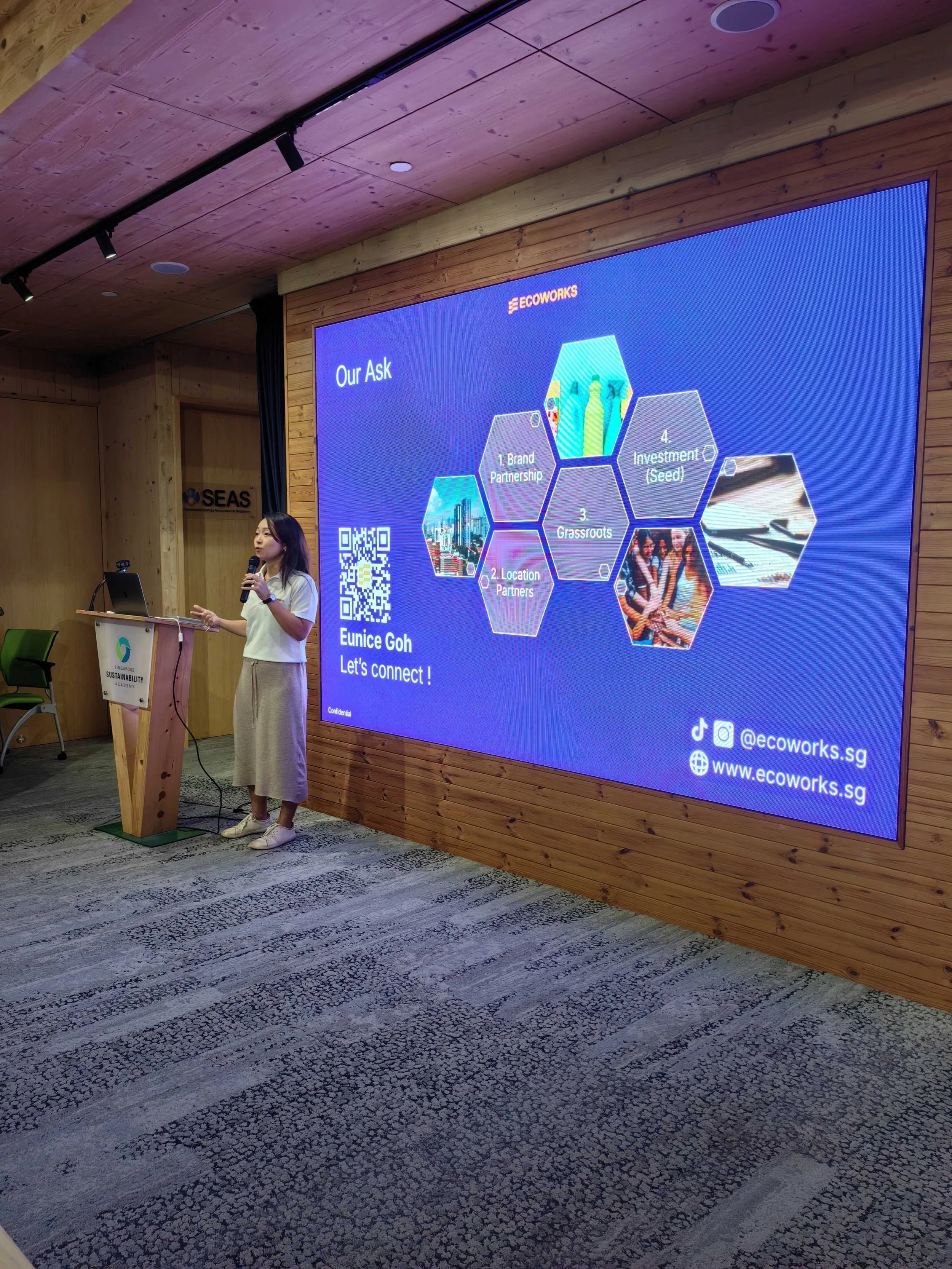Circular Economy
About
Inspired by the Climate Fresk, the Circular Economy collage summarises the environmental issues of natural resources and our generation and treatment of wastes as well as other impacts caused by human activities.
Methodology
Card-Game Based; with around 40 cards each detailing an aspect of the circular economy, from the principles of its model and innovative business cases to the consequences of the current linear "take-make-waste" system.
Happens in 3 main phases;
The Cards (Understanding the dynamics of a circular system)
The Creative Phase (Connecting with the topic through art)
The Debrief (Personal and collective action planning).
Data figures are inspired by reports from leading organisations such as Ellen MacArthur Foundation, the United Nations Environment Programme (UNEP), and the Circle Economy Foundation. These sources provide the core scientific data and economic insights that inform the workshop.
Effectiveness
Participants will learn the foundational knowledge for future life cycle assessments, making links to both the environmental climate risks on, as well as, the environmental impacts of your organisation’s products, as well as steps that one can take to make resource extraction, product design, manufacturing, sales and end of life more sustainable.
Very much adaptable to the specific company’s operations/supply chain, where we can also incorporate the organisations’ specific content (wherein provided by company) and business context.
Workshop Flow / Agenda
The workshop happens in 2 main chapters. In small groups of 6-8 pax, with a set of cards highlighting key facts, and through exchanges, participants gain a systemic view of our current linear system.
Participants then collaborate to decipher needed actions to shift away from our consumption economic model. A trained facilitator guides the team, brings its expertise and ensures smooth communication.
Chapter 1: A linear economy
Driven by consumption: Always more, always more short-term
Producing waste: Total loss of resources, no satisfactory solution to waste treatment
Based on extractivism: Value creation depends on the extraction of resources and Implies a race for volume (vs. value): Resulting in significant externalities
A predatory system (quantity and quality, pollution and toxicity)
Undermining the delicate planetary balance (climate, biodiversity, human health…)
Chapter 2: Shifting from Linear to Circular
Value Hill Concept
How to circularise resources, Optimise Use, Reduce Impacts & Resources
Book a workshop with us!
Email to: natasha@thetransmutationprinciple.com
